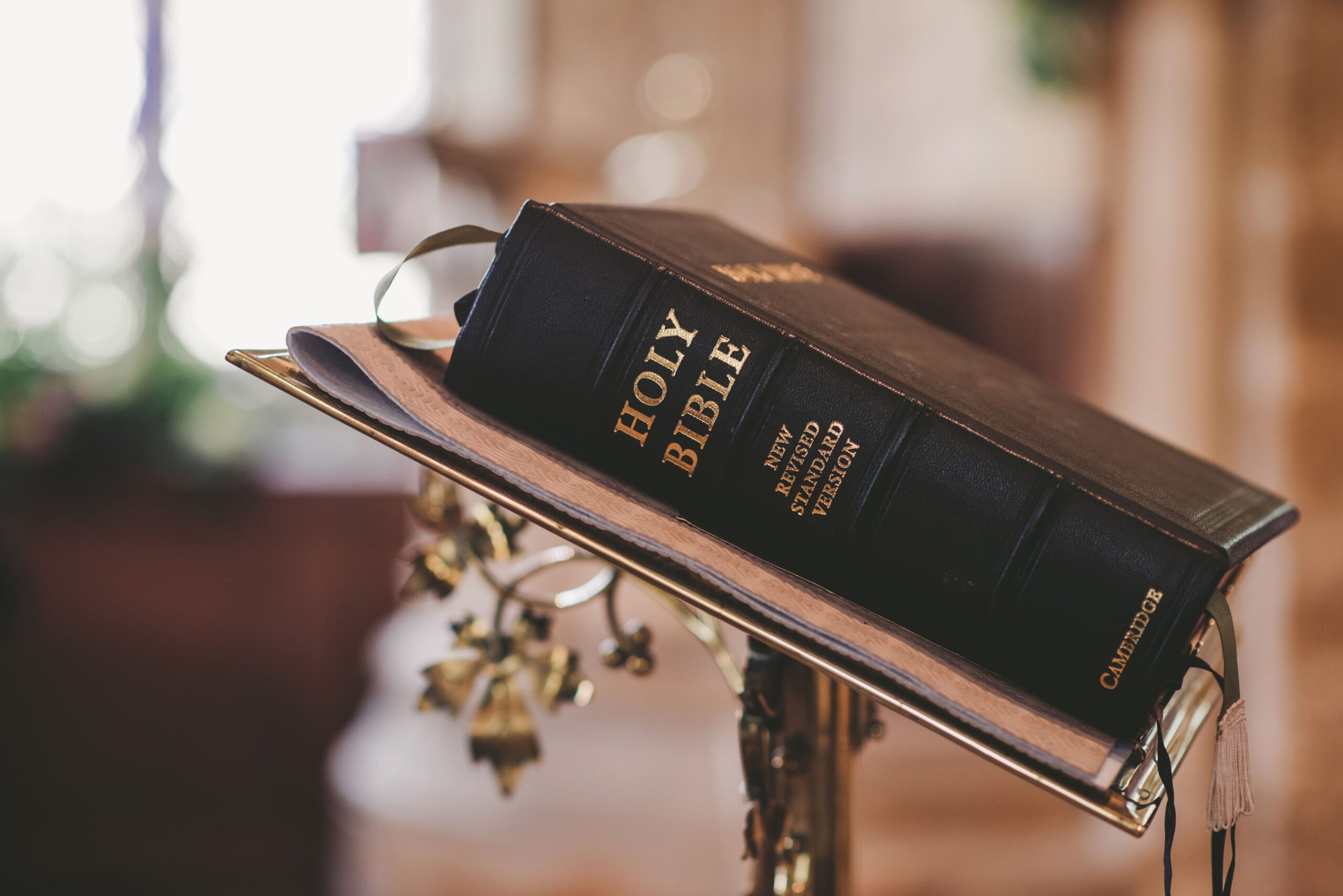For centuries, evil has been one of those concepts that people have wrestled with. Even as early as the Garden of Eden, Adam and Eve were confronted with the problem of evil and how to deal with it. Today, the problem remains, and people continue to struggle to make sense of why evil exists in a world created by a good God.
The Bible acknowledges the existence of evil and offers answers to this philosophical and theological challenge. According to the Bible, evil is that which is morally wrong or sinful, and it is the absence of good. Since God is the measure of goodness and is essentially good, evil is that which goes against God’s nature and His ways. Thus, evil exists in our world because some of God’s creatures rebelled and continue to rebel against Him.
The first creature to rebel against God was Lucifer, who became the author of evil. This rebellion is depicted in Isaiah 14:12–14, where Satan declares, “I will ascend above the tops of the clouds; I will make myself like the Most High.” Other angels joined Satan in his rebellion, as seen in Ezekiel 28:12–18, where the king of Tyre is addressed as someone who was in Eden and who was blameless until wickedness was found in him.
Humans rebelled against God when Eve fell to Satan’s deception, and Adam willingly partook in her sin, failing to cover and shield her from evil. This event is described in Genesis 3, where Adam and Eve disobey God’s command by eating from the Tree of Knowledge of good and evil. God warned Adam in Genesis 2:16-17, And the Lord God commanded the man, saying, Of every tree of the garden thou mayest freely eat: But of the tree of the knowledge of good and evil, thou shalt not eat of it: for in the day that thou eatest thereof thou shalt surely die. Their disobedience brought sin and death into the world and separated them from God. Furthermore, their rebellion initiated a cycle of corruption that continues to this day.
Both believers and non-believers wrestle with this complex question. How could a good God allow evil to exist in the world? Different religious traditions address this issue in different ways. Some suggest that evil and suffering are a consequence of human free will and, therefore, a necessary byproduct of the world in which humans live. In this view, God gave humans free will, making evil possible to exist.
Others suggest that the existence of evil and suffering in the world is part of a larger plan or purpose known only to God. Furthermore, some argue that suffering and evil allow humans to develop virtues such as compassion, selflessness, and courage. In this view, God uses suffering to bring about spiritual growth and deepen our relationship with Him.
Regardless of the different opinions about the nature and existence of evil, one thing is clear: we stand firm in our belief that God is a good God. This belief is grounded in the Scriptures, which repeatedly declare God’s goodness. For instance, Psalm 100:5 says, “For the Lord is good, and his love endures forever; his faithfulness continues through all generations.” In James 1:17, the Bible says, “Every good and perfect gift is from above, coming down from the Father of the heavenly lights, who does not change like shifting shadows.”
The genocide in Darfur stands as a harrowing reminder of humanity’s capacity for immense suffering and despair. Its tragic narrative is etched with the bloodshed and anguish of countless innocent lives, forever marking a dark stain on our collective history.
A complex tapestry of political, social, and economic factors unraveled when Sudanese government-backed militia groups systematically attacked the civilian population of Darfur. Ethnic groups perceived as rebel supporters became the primary target, subject to unspeakable acts of violence, mass killings, and untold horrors. Rape, torture, and forced displacement became agonizingly common, thrusting innocent men, women, and children into a vortex of abject despair.
The world’s conscience awakened as the international community rallied behind the recognition of this atrocity as genocide. It serves as a stark reminder that evil can take hold in the hearts of human beings, leading them to perpetrate unspeakable acts of violence upon their fellow brothers and sisters. The perplexing question arises once more, piercing through our collective consciousness: why do we allow such malevolence to exist?
As we delve into the intricate tapestry of causality behind the Darfur genocide, we uncover the intricate intertwining of political maneuverings, societal divisions, and economic disparities. Yet, at the core of this heart-wrenching tragedy lies a fundamental issue: the unsettling belief in one’s superiority over others. It is this twisted notion that nourishes the seed of violence and evil.
A lack of love and compassion acts as the nefarious culprit, allowing darkness to cloak the human spirit and driving individuals to brutalize their fellow human beings. Yet, this realization points us toward a glimmer of hope. If only we could nurture love and respect for one another, breaking free from the limitations of prejudice and divisions, a transformation could occur. Through collective efforts rooted in a shared vision of unity and empathy, we could forge a path toward a more just and equitable world.
In reflecting upon Darfur, we are called upon to confront the depths of our shared humanity. Let us learn from this horrific chapter in our history, holding it aloft as a testament to the imperative of love and compassion. Together, we can traverse the path of healing and progress so that future generations are spared the agony of witnessing such atrocities.
The question of why there is evil in the world is undoubtedly one of the most profound mysteries of our existence. It is a question that has challenged the most brilliant minds throughout history and one that continues to elude a definitive answer. Yet, in the wake of such profound and existential questions, we seek solace in what we can grasp, clinging to the paradigms that offer even a glimmer of understanding.
However, amidst this darkness, we find hope. The Bible assures us of God’s goodness and that His ways are just and righteous. Even in times of darkness, He holds us close, enveloping us in His loving embrace, giving us the courage to face life’s trials and difficulties. We may not always fully understand His ways and purposes, but we can trust Him, for He is the light that shines amidst the darkness, illuminating our path and guiding us toward a journey of healing and restoration.
So let us take solace in the wisdom of the Bible and in the unshakeable assurance that God is with us always, a beacon of hope amidst the ravages of evil. We may never fully comprehend the mysteries of why evil exists or why bad things happen to good people. Still, we can take comfort in knowing that a loving and good God watches over us, giving us the strength to persevere through even the darkest times. And so, with faith, we will move forward, confident in the promise of a better tomorrow.
Dr. Aaron Lewis July 21, 2023


When God created man, He gave man free will. He also gave man dominion of over all the living creatures of the earth. Man and woman sinned against God by eating of the tree of good and evil. Even though God had given them plenty there was still a need to explore that which was not given. The next generation, Abel and Cain, had their share of problems. In as much Cain killed Abel because Cain was mad that God favored Abel because Abel honored God and Cain dishonored God with his offering to God. The Bible lets us know that God will not strive with man always. The key word, strive. God strives with man because of man’s evil doings. I’ve heard individuals blame God for man’s evil. Instead of blaming God for man’s evil, let’s blame man. When man does evil, our actions should be “what can I do.”
In the case of Darfur, Not on Our Watch: The Mission to End Genocide in Darfur and Beyond by Don Cheadle (Author), he showed how he helped to end the crisis in Darfur. Here, he did not blame God, but rather focused on ending the crisis in Darfur. This blog shows us that a loving God watches over us, and He always sends help in troubled times.